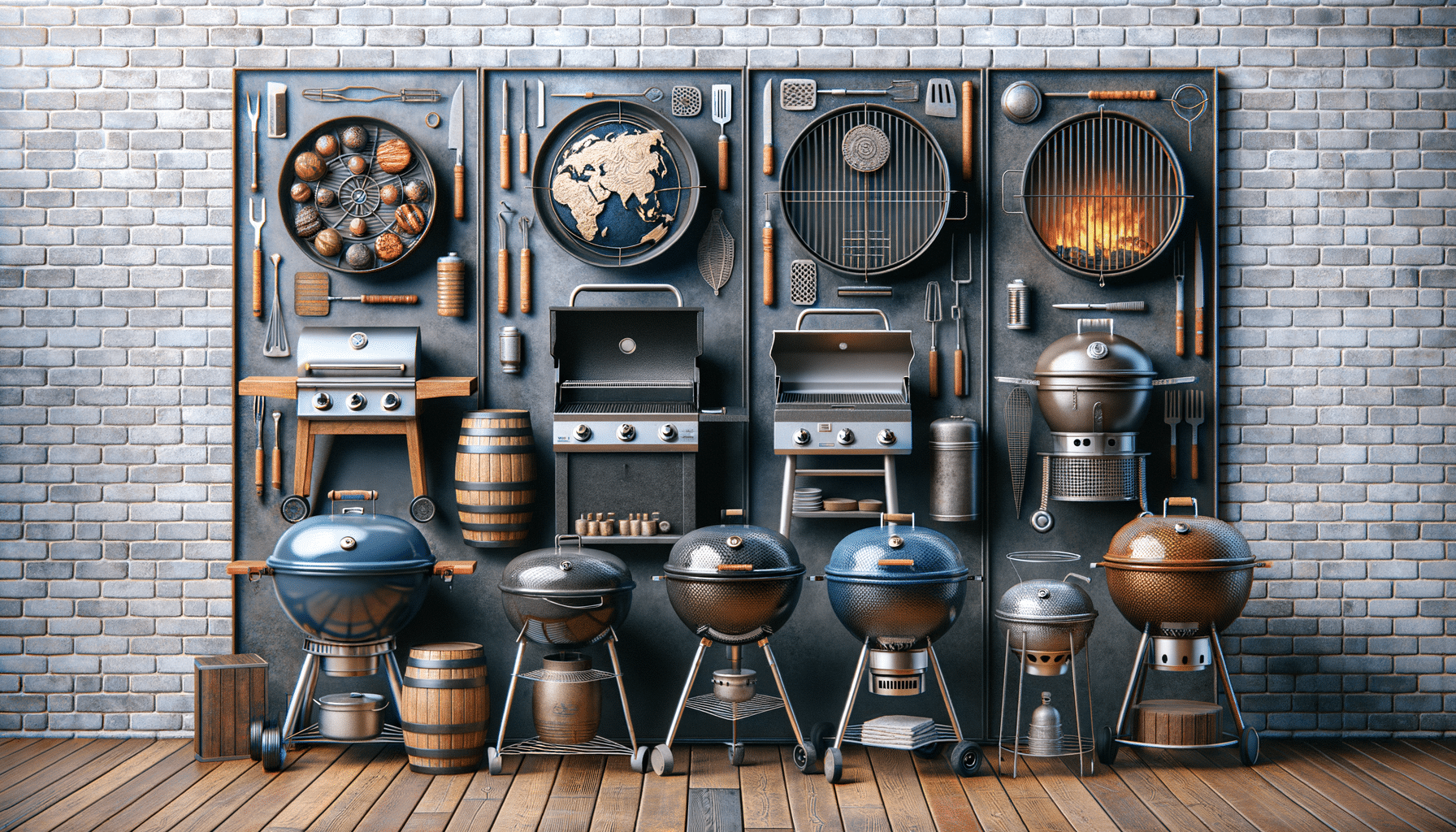Exploring the World of Grills: A Comprehensive Guide
Discover the diverse world of grills, their types, and what makes them a beloved choice for outdoor cooking enthusiasts.

The Evolution of Grills: From Ancient Times to Modern Day
Grilling, a cooking method that dates back to ancient times, has evolved significantly over the centuries. Initially, humans used open fires to cook meat, a technique that laid the groundwork for today’s grilling practices. As time progressed, the methods and tools became more sophisticated, leading to the development of various types of grills that cater to different culinary needs and preferences.
In ancient civilizations, grilling was primarily a necessity, a means to cook food over an open flame. As metallurgy advanced, so did the tools used for grilling. The invention of the cast iron grill, for instance, marked a significant milestone in grilling history, allowing for more controlled and efficient cooking.
Today, grills have become a staple in many households, especially in regions where outdoor cooking is a cherished tradition. The evolution of grills has not only enhanced the way we cook but also enriched our culinary experiences, making it a beloved pastime for many.
Types of Grills: A Closer Look at Options Available
The world of grills is diverse, offering a range of options to suit different cooking styles and preferences. Understanding the types of grills available can help you make an informed decision when choosing the right one for your needs.
Among the most popular types are charcoal grills, known for their ability to impart a distinct smoky flavor to food. They are favored by purists who appreciate the traditional grilling experience. On the other hand, gas grills offer convenience and control, allowing users to adjust the heat with precision. These are ideal for those who prefer a quick and easy grilling process.
Electric grills are another option, particularly suitable for indoor use or areas with restrictions on open flames. They provide a smokeless cooking experience, making them a practical choice for apartment dwellers. Additionally, pellet grills have gained popularity for their versatility, combining the benefits of both charcoal and gas grills by using wood pellets to provide heat and flavor.
Each type of grill has its unique advantages, and the choice ultimately depends on personal preference and cooking needs.
Features to Consider When Choosing a Grill
When selecting a grill, several features should be considered to ensure it meets your cooking requirements. One of the primary aspects is the size of the grill, which depends on the number of people you typically cook for and the available space in your outdoor area.
Another important feature is the material of the grill. Stainless steel is a popular choice due to its durability and resistance to rust, while cast iron is known for its excellent heat retention. The type of fuel used is also a crucial factor; for instance, while charcoal grills offer a traditional flavor, gas grills provide convenience.
Additional features such as temperature control, side burners, and storage space can enhance the grilling experience. Temperature control allows for precise cooking, while side burners are useful for preparing side dishes. Storage space is beneficial for keeping utensils and grilling accessories organized.
Considering these features will help you choose a grill that not only fits your lifestyle but also enhances your outdoor cooking experience.
Maintaining Your Grill: Tips for Longevity
Proper maintenance of your grill is essential for ensuring its longevity and optimal performance. Regular cleaning is crucial, as it prevents the buildup of grease and food particles that can affect the grill’s efficiency and taste of the food.
After each use, it’s advisable to clean the grates with a grill brush to remove any residue. For a more thorough cleaning, disassemble the grill and soak the parts in soapy water. This helps in removing stubborn grease and prolongs the life of the grill components.
It’s also important to check the fuel lines and connections regularly, especially for gas grills, to ensure there are no leaks. For charcoal grills, removing ash and debris after each use will prevent corrosion and maintain airflow.
Covering your grill when not in use protects it from the elements, reducing the risk of rust and damage. With these maintenance tips, you can enjoy your grill for many years to come.
The Cultural Significance of Grilling
Grilling is more than just a cooking method; it holds cultural significance in many parts of the world. In the United States, for instance, grilling is synonymous with summer gatherings and family barbecues, where people come together to enjoy food and company.
In other cultures, grilling is an integral part of traditional cuisine. In Argentina, for example, the asado is a social event centered around grilling meat, reflecting the country’s rich culinary heritage. Similarly, in Korea, grilling is a communal activity, with Korean barbecue being a popular dining experience where diners grill their own meat at the table.
The communal aspect of grilling fosters social interaction and creates memorable experiences, making it a cherished tradition across cultures. Whether it’s a backyard barbecue or a festive celebration, grilling brings people together, transcending cultural boundaries and uniting people through the shared love of food.